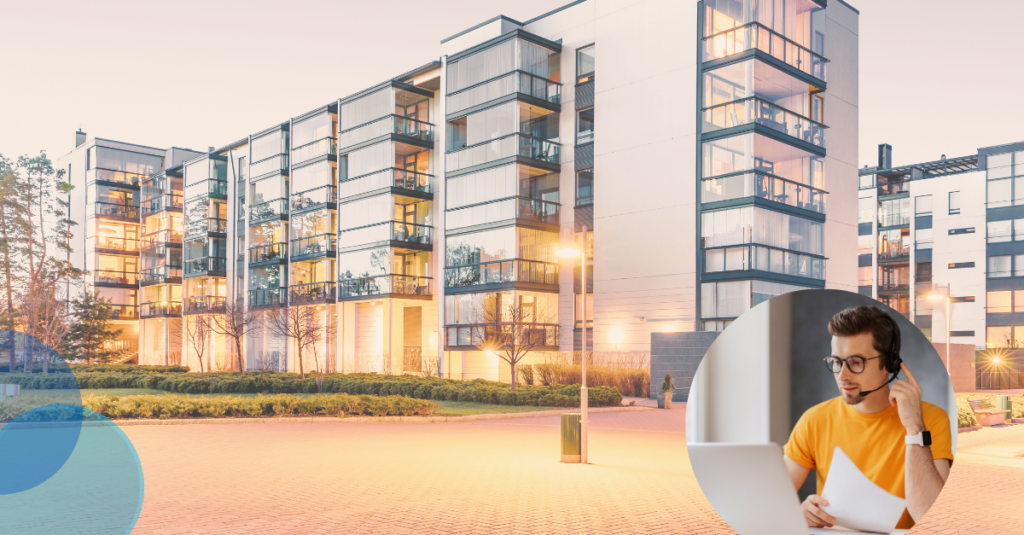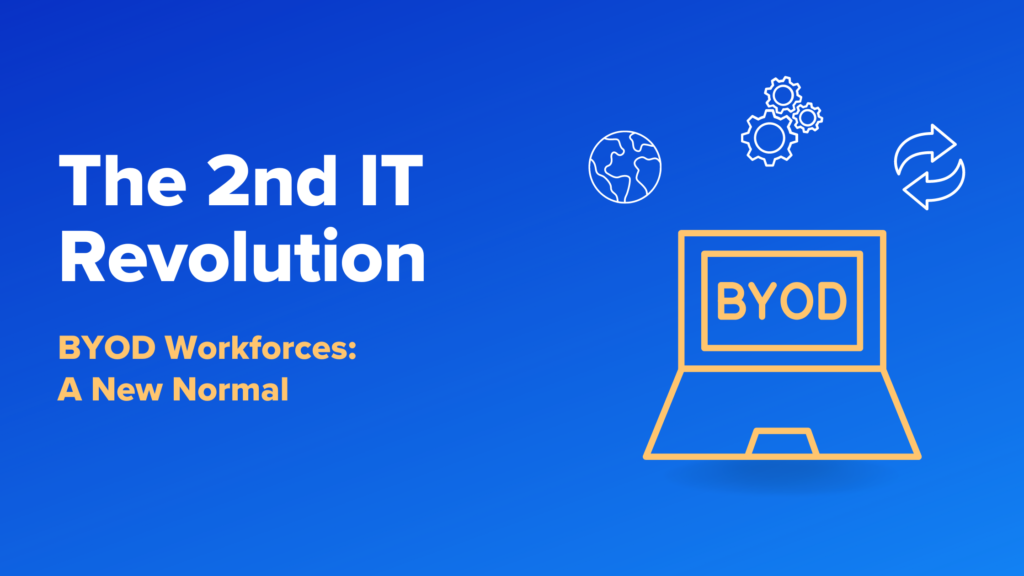Unlocking BYOD Potential: A Real Estate Company’s Holistic Tech Approach

In today’s dynamic business landscape, where remote work has become the new norm and employees increasingly use personal devices for work-related tasks, ensuring the security of endpoints has never been more critical. This challenge is particularly pronounced for organizations embracing a BYOD (Bring Your Own Device) policy, where employees use their personal laptops, tablets, and smartphones to access company resources.
We recently spoke with a leading commercial real estate organization with approximately two hundred 1099 agents across the country, each armed with their own arsenal of devices (laptops and mobile) and applications. They understand the importance of securing endpoints in a BYOD environment. However, this flexibility comes with inherent security risks, as personal devices often lack the robust security measures found in corporate-owned hardware.
The company also works with a variety of clients in highly regulated industries like banking and healthcare, so the stakes go even higher. The potential consequences of a data breach or security incident can be large, resulting in financial losses, reputational damage, and legal liabilities.They want to maintain the trust they have established with their clients.
For this company, the lack of standardized endpoint security on BYOD is akin to leaving the front door wide open in a high-crime neighborhood. They have looked at a variety of solutions to solve this issue, and have found concerns with a lot of them. A primary concern is around the use of EDR solutions. Beyond the set up complexity that can lead to misconfigurations and potential security gaps, they are concerned about the technology potentially crossing the line from threat detection to intrusive surveillance. The fear of inadvertently violating employee privacy or exposing the company to litigation looms large.
Moreover, the prospect of implementing VDI (Virtual Desktop Infrastructure) and streaming apps also presents its own set of challenges. Not only would this require backend infrastructure and ongoing management, but it could also disrupt user productivity and experience. Providing their agents with a natural experience that doesn’t feel corporate or heavy-handed is important so that agents can continue to feel like they have the same freedom and flexibility on their laptops.
With a small IT and Security team, the commercial real estate organization wants a more holistic solution that would make it easier to securely onboard and offboard new 1099 employees, mitigate risk and keep their sensitive data protected against threats. Unlike piecemeal solutions that focus on individual aspects of security, such as antivirus software, VPNs or encryption tools, a holistic approach addresses the entire spectrum of security concerns in a coordinated and integrated manner. A single solution with a multi-layered security approach would allow for a more robust defense mechanism that is resilient to evolving cyber threats while eliminating the time and complexity of managing a larger tech stack.
Why is a holistic approach so crucial in today’s digital landscape?
The answer lies in the evolving nature of cyber threats and the complex interplay between security, privacy, and usability. In the past, traditional security solutions often focused on erecting barriers and fortifying defenses, without sufficient consideration for the user experience or the broader implications for privacy and trust.
However, as the threat landscape has evolved and cyber attacks have become more sophisticated, it has become increasingly clear that security cannot come at the expense of user privacy or productivity.
In fact, a narrow-minded focus on security measures alone can often backfire, leading to user frustration, resistance, and ultimately, circumvention of security protocols and shadow IT.
This is where a holistic approach to BYOD security comes into play. By taking a comprehensive view of security that encompasses not only technical safeguards but also user education, awareness, and empowerment, organizations can create a more resilient and adaptive security posture that is better aligned with the needs and expectations of modern users.
A paradigm shift in securing unmanaged devices with Venn
No shipping laptops. No backend infrastructure or remotely-delivered desktops. By embracing a holistic approach to BYOD security with a solution like Venn, this organization can enhance their security posture, protect their sensitive data and also build trust with their agents and stakeholders. In doing so, they can create a safer, more secure, and more resilient digital environment that enables productivity, collaboration, and innovation to flourish.
Moreover, a key aspect of Venn’s approach is its commitment to protecting end user privacy. In contrast to invasive security measures that compromise user privacy or monitor personal activities, Venn prioritizes transparency and user control. The solution operates within a Secure Enclave, ensuring that only work-related activities are secure and protected, while personal data remains untouched and inaccessible.
Venn provides a unique blend of security, privacy, and usability tailored specifically for the modern workplace. Venn secures remote work on any unmanaged or BYOD computer or mobile device with a radically simplified and less costly solution than virtual desktops or having to lock down every PC. Similar to an Mobile Device Management (MDM) solution but for laptops – work lives in a company-controlled Secure Enclave installed on the user’s PC or Mac, where business activity is isolated and protected from any personal use on the same computer.
For this commercial real estate organization, seamless integration with their existing tech stack and applications is key. Their applications include Microsoft 365, Salesforce, DocuSign, SAP, and accounting software for day-to-day operations. Venn’s compatibility with these platforms streamlines the deployment process, ensuring no disruption to workflow while maximizing security.
Additionally, Venn’s architecture ensures that sensitive data is encrypted both in transit and at rest, further enhancing privacy and confidentiality. Encryption allows companies to safeguard sensitive information from unauthorized access or interception, even in the event of a security breach.
Furthermore, Venn’s user-centric design promotes trust and collaboration by empowering employees to use their own device, keep their personal space private and have a very natural experience. Through its intuitive local interface and clear communication to users, Venn fosters a culture of transparency, where users understand the importance of security and actively contribute to its enforcement.
By adopting a holistic approach to BYOD security with solutions like Venn, organizations like this commercial real estate company can effectively protect sensitive data, mitigate security risks, and uphold end user privacy. By prioritizing comprehensive protection, transparency, and user control, organizations can navigate the complexities of remote work with confidence, knowing that their valuable assets are secure and their employees’ privacy is respected.
Learn more about Venn and get started today.

Scott Lavery
SVP Marketing
More Blogs


